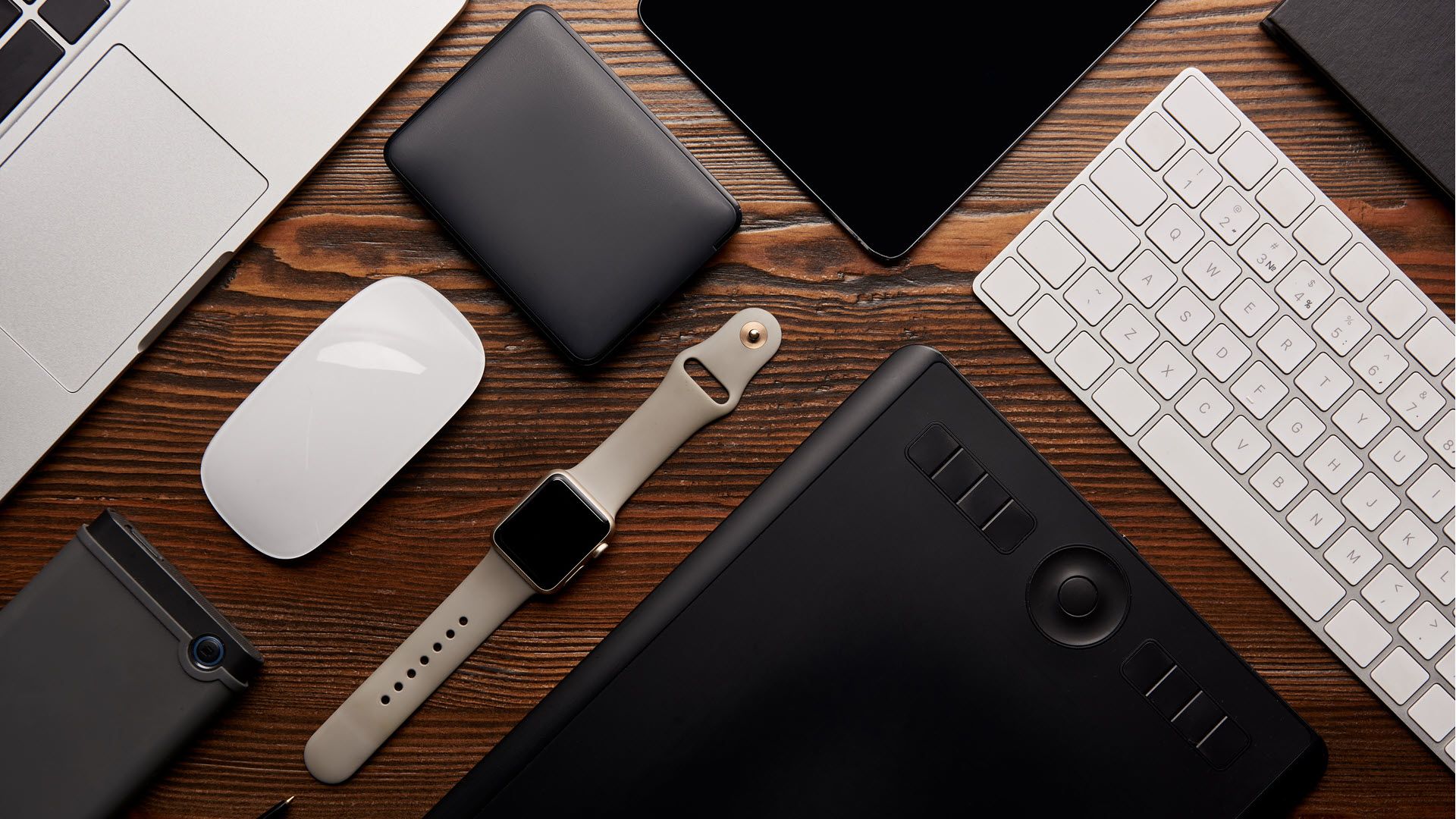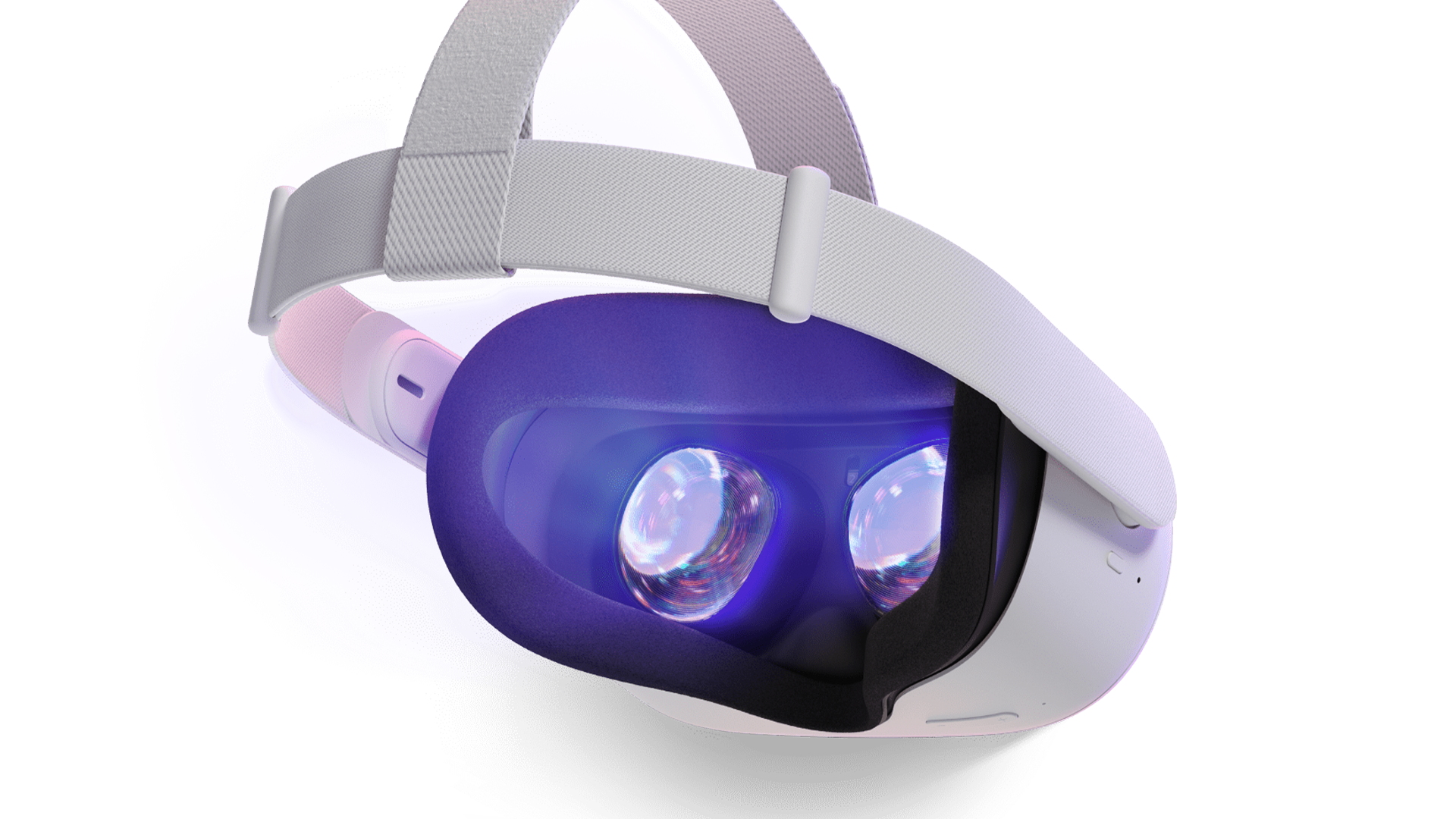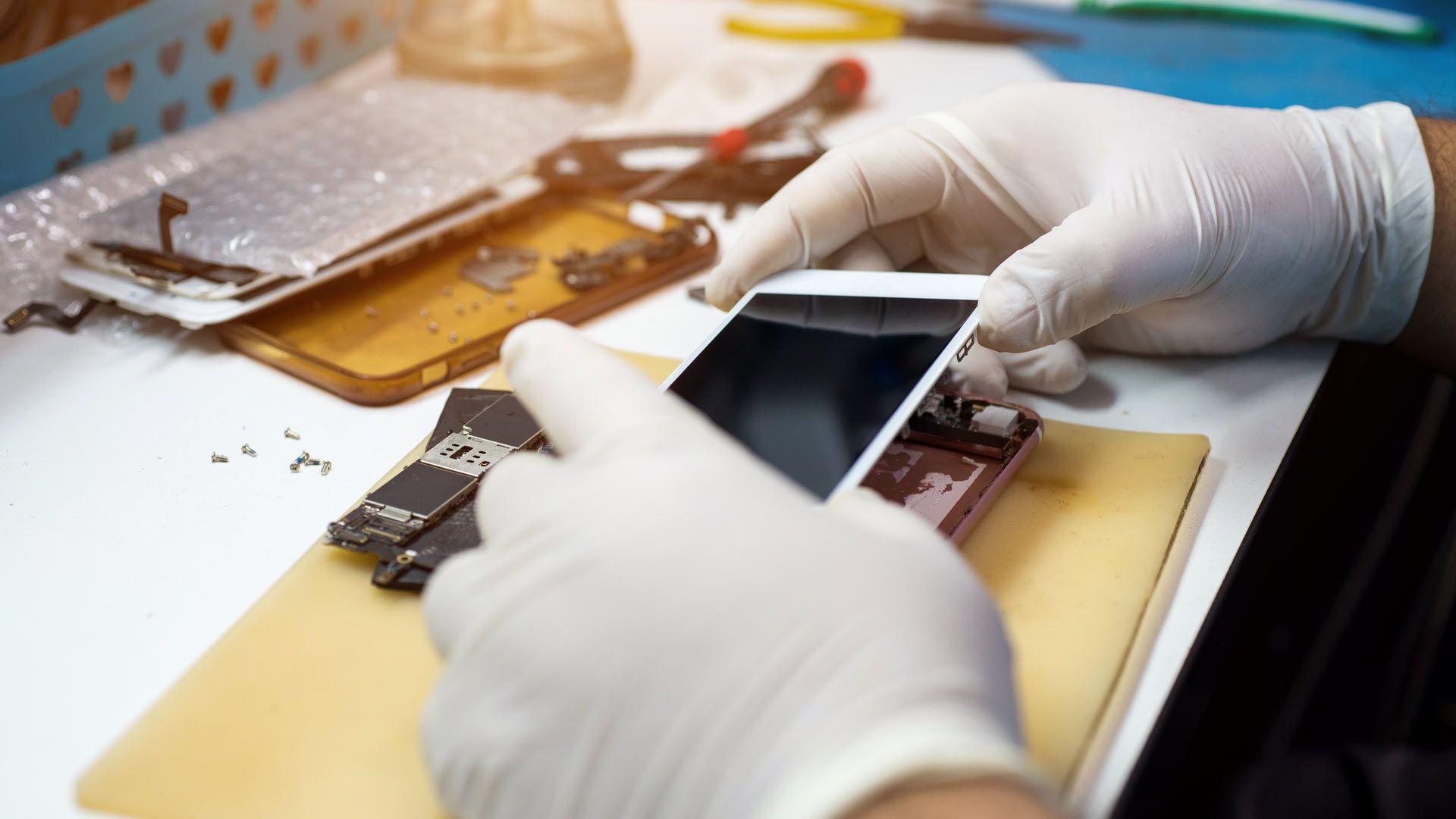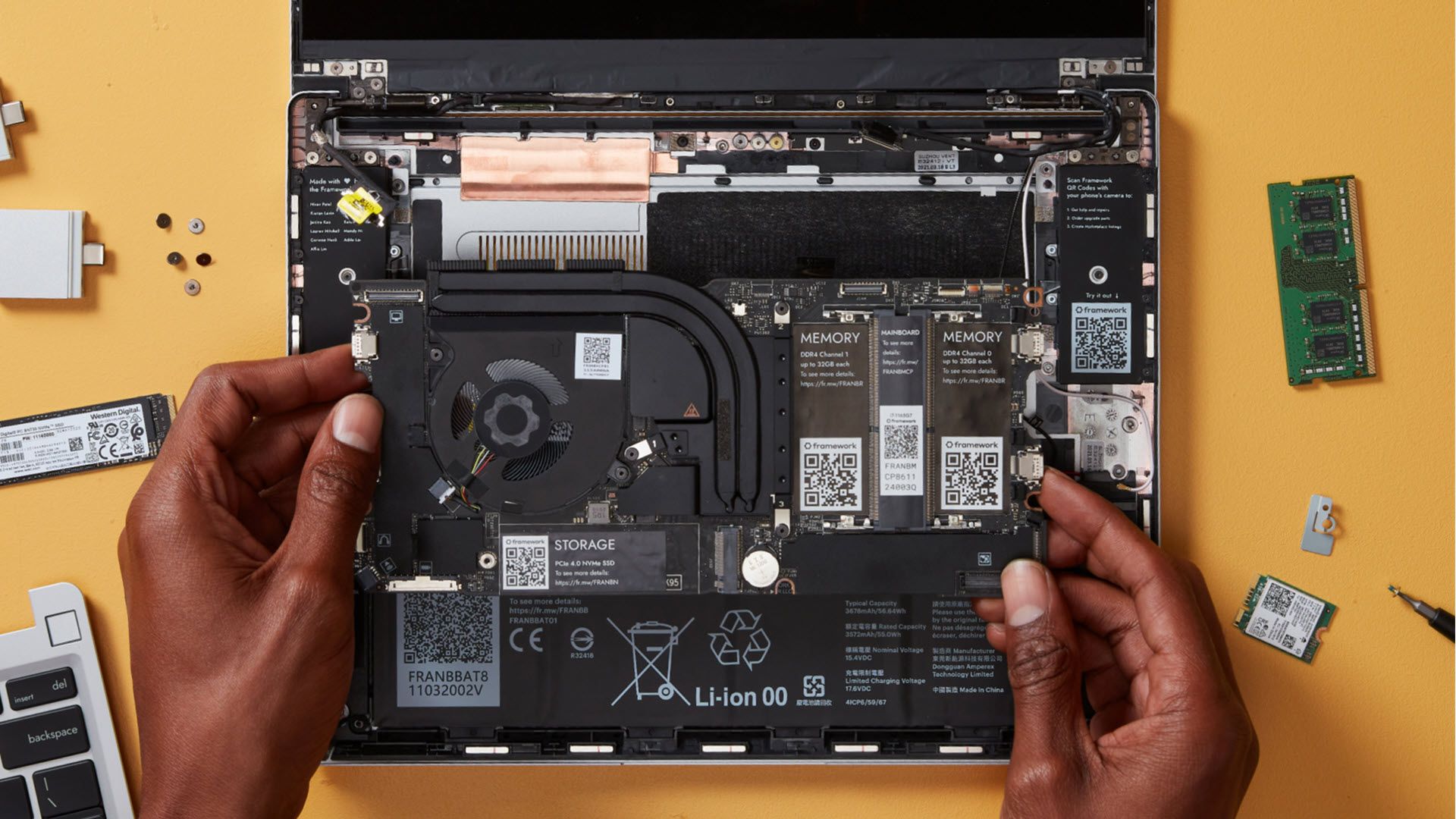Quick Links
The latest technology can be expensive, but knowing that the thing you bought is yours forever might take a bit of the sting out of a four-figure purchase. The problem is, you haven't bought the whole device, and in certain circumstances, you will end up holding a useless lump of plastic.
There are plenty of ownership laws protecting consumers and defining their rights. Contrary to this, there are also laws that protect corporate interests, loopholes, and gray areas that allow businesses to retain an incredible amount of control over their products. Here are a few reasons you don't truly "own" the tech you paid good money for.
The terms and conditions are important
On the surface, a sale may seem relatively straightforward. You hand over some money, receive an item, and that item now belongs to you. But if you scratch the surface, things get much more complex. When setting up or updating a device, you'll probably skim through a long terms and conditions document or two. Although nobody, myself included, bothers to read those things, the information they contain is quite important.
There are some limitations. No term in a contract, which is what a terms and conditions document is, can contravene the laws of the nation it's being signed in. The law takes precedent and would immediately render that clause, or in some cases the entire contract, invalid. So you have no chance of accidentally selling yourself into slavery when you agree to one of Samsung's software updates. However, some things in the terms and conditions may worry you. You may be giving a company the rights to your images, allowing them to remove content you've paid for at will, and even permitting them to brick your device if they want to.
A Large Part of the Problem is Software
If you buy something simple like a hammer, the manufacturer has little say over what you do with it and no way to enforce any of its rules. Unfortunately, tech companies have an easier time retaining control of their products because of the nature of the products themselves. When you buy a new phone, you may think of it in terms of components. You're purchasing a 32-megapixel camera, a Snapdragon processor, 8GB of ram, etc. You will indeed own those components, but those aren't the phone.
What you're purchasing when you buy a phone, a laptop, or even a TV, is something that can run the company that made its software. How much of an issue this is varies from company to company. Apple is known to be quite tight with its code, while Android is a bit more open. But the important thing to note is that you don't own the software the device is running -- you're just being allowed to use it. The terms around that can change at any time, and the company that owns the software can also withdraw its permission at will.
What You May Own is an Expensive Paperweight
What happens when you have the bit of the device you actually own and nothing else? In some circumstances, you'll just be holding a useless lump of metal and plastic. One good example involves the Oculus Quest 2. Until recently, Meta made you tie your $399 headset and games library to an active Facebook account. In Meta's eyes, that was a single account and what affected the account on one device affected it on all of them. So if you happened to cop a permanent ban or your Facebook account was deleted, your games library would go with it, and you could no longer access your Quest 2. It didn't matter if you had acted like a model citizen while in the headset and the ban came from something you wrote on your phone or laptop; Meta would still brick your Quest.
Things were even worse for owners of the original Quest. The headset was on sale before Meta decided to make Facebook accounts mandatory. People who bought a Quest before Meta made the change were told they'd have to connect an account or lose access to their device. It is worth noting the deadline Quest users were given was January 2023, and Meta has since removed the Facebook requirements. Even though it worked out in the end, this is still an example of how tech companies can retroactively decide who can use the devices they sell.
Theoretically, you could write your games library off and get your Quest 2 working again with a new Facebook account. But circumventing a ban by making a new account is against Meta's terms and, if discovered, that account would be permanently banned too. Meta recently removed the need for a Facebook account from its Quest headsets, so this isn't as much of an issue. But it does show the power tech companies retain over the products they "sell" you.
You Can't do What You Want With Your iPhone
If your purely mechanical lawnmower breaks, you can go to a hardware store and choose from a selection of parts. There may be various parts that work with your lawnmower, allowing you to balance cost and quality before purchasing the one that's right for you and carrying on with the repair. With an iPhone, things aren't that simple. If you don't buy Apple's official parts, your phone's functionality might be reduced. The off-brand part you purchased could be identical to an official Apple part in almost every way, but if your phone does not believe it came from an official source, Apple will punish you for it.
Despite Apple fighting against right-to-repair legislation for years and its history of making home repairs as difficult as possible for customers, things may be getting better. The company announced it was launching a home repair program to make basic repairs easier for its customers. There isn't a set date for the program's start, it's limited in its scale, and you will probably still be using approved Apple parts -- but it's a step in the right direction. While things might be getting better for iPhone owners, it's getting worse for people with high-end lawnmowers and tractors. John Deere is facing legal battles after putting similar software locks on its equipment.
So What Can We Do?
As we've mentioned, a lot of the leverage companies have is based around their ownership of the software and the fact you're just being allowed to use it. If you want to take possession of your tech, there are a few things you can do -- though none of the solutions are ideal. A lot of companies put a significant emphasis on "customer experience," and I'm going to point towards Apple again because it is the best example of this.
Love them or hate them, Apple products are very user-friendly, integrate with other Apple products seamlessly, and are designed with the needs of their core users in mind. It could be argued that Apple gets away with many of its less palatable actions because of how attached people are to its products. If you want to break away and take ownership of your tech, you will burn your bridges with companies like Apple and miss out on some of that experience.
Android users don't get off lightly either. Google's terms outline their right to terminate your account at any point. The criteria for termination listed in the terms are very vague, and if it decides to ban you from its services, you have no real recourse. The impact of a Google account ban varies from person to person, depending on how many of Google's services they rely on. But if you have an Android, your phone will be severely limited without an active Google account.
Samsung has the power to remotely brick any of its televisions. While the company says it is only used to fight crime by breaking stolen TVs, it could theoretically be used on an innocent person's idiot box. However, the Korean company is making some right-to-repair strides, having partnered with iFixit to help customers repair their devices at home.
To truly own your tech, you need to use open-source software or "jailbreak" your gadgets. These actions involve operating in a legal grey area and drastically inconveniencing yourself. As annoying as Windows is sometimes, it's still less of a pain than Linux. Using the open source OS requires some technical know-how, and getting software or hardware functioning with it can be a drawn-out process.
With jailbreaking, a section of the Digital Millennium Copyright Act may make it illegal, but Apple is unlikely to make it a police matter. However, it will void any warranties you have, and the company will refuse to deal with the device that a customer has jailbroken. You'll be behind on software updates; if anything breaks, you're on your own. Your phone will also be open to several security risks, so go down this route at your own risk.
Things Could Change on a Larger Scale
Consumers aren't totally powerless. Numerous countries, including most of Europe and the United States, have "right to repair" bills in the works or on the books. If you don't like the idea of a company telling you what you can and can't do with an item you've paid for, consider writing to your political representatives about it. You can either express your support for pending right-to-repair legislation or demand tougher consumer protections.
Politics takes time, but there are products you can buy while you wait for things to change. Some companies have spotted a gap in the market and now offer easily repairable modular devices. Framework's laptops offer a maintenance experience closer to desktop PCs. Users can easily swap out parts that are broken or need an upgrade. This line of thinking isn't just limited to computers; modular phones are on the market too. Fairphone is probably the best current example, offering a modern smartphone experience while being incredibly easy to repair or upgrade.





